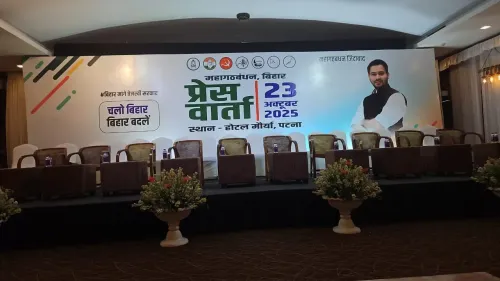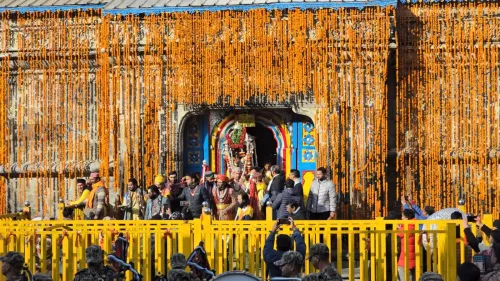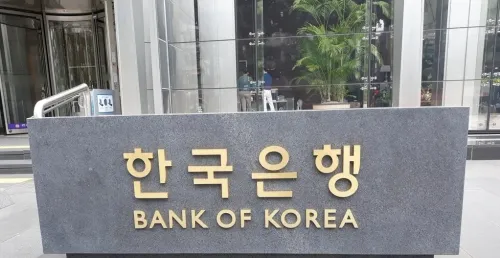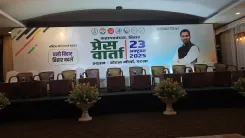Why Are Baloch Activists Being Listed Under Pakistan's Anti-Terrorism Act?
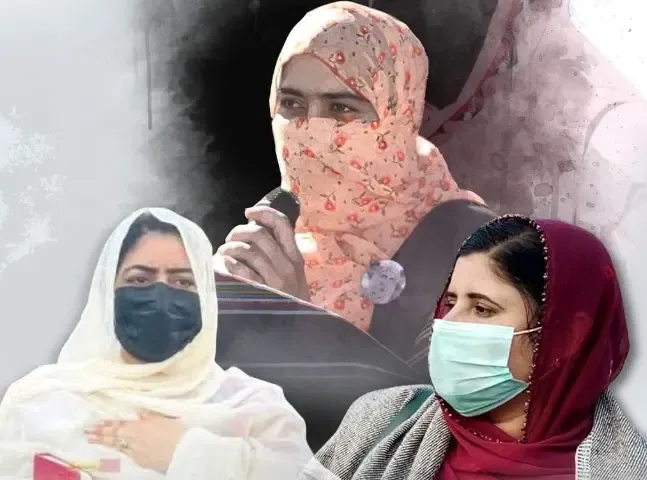
Synopsis
Key Takeaways
- Human rights organizations condemn the listing of Baloch activists.
- The activists are accused of terrorism-related activities.
- This decision is seen as a method to silence dissent.
- Activists vow to challenge the charges legally.
- Concerns about freedom of expression in Pakistan are heightened.
Quetta, Oct 22 (NationPress) A coalition of human rights organizations has vocally criticized the Balochistan government's recent decision to include three peaceful Baloch women activists in the Fourth Schedule of Pakistan's Anti-Terrorism Act (ATA) 1997.
The notification, dated October 16 and released by the Balochistan Home Department, accused Shalee Baloch, the Central Organiser of the Baloch Women Forum (BWF), and members Naz Gul and Syed Bibi of being involved in activities linked to terrorism, hence their inclusion under the ATA.
This decision has incited widespread condemnation from human rights advocates and organizations worldwide, highlighting the ongoing persecution faced by Baloch activists at the hands of Pakistani authorities.
The Baloch Voice for Justice (BVJ) condemned the action, characterizing it as part of a systematic intimidation strategy aimed at silencing Baloch women who strive to uphold human rights through non-violent and democratic means.
According to the BVJ, the persistent misuse of outdated laws such as the Fourth Schedule of the ATA and the Maintenance of Public Order (MPO) illustrates a calculated effort by the authorities to criminalize dissent and stifle legitimate political expression in Balochistan.
“These actions not only violate the Constitution of Pakistan, particularly Articles 19 and 25, but also breach Pakistan's commitments under international human rights law, which safeguards rights to freedom of expression, peaceful assembly, and association,” BVJ added.
In contrast, Paank, the human rights department of the Baloch National Movement, criticized the action as a blatant attempt to criminalize peaceful activism and silence Baloch women fighting against enforced disappearances and human rights violations.
Paank urged international human rights organizations to step in, demanding the removal of the activists' names from the Fourth Schedule and holding Pakistan accountable for the ongoing repression in Balochistan.
Following the notification, Shalee Baloch expressed her thoughts on X, stating, “The recent notification by the Government of Balochistan's Home Department regarding the inclusion of my name alongside Naz Gul and Syed Bibi is not a new tactic to suppress indigenous voices for human rights. This is a longstanding effort to undermine the fundamental rights of the people and to eliminate any resistance.”
“We have always fought within the framework of the law and the constitution, and we will pursue every legal avenue to challenge these baseless charges against us. Such cowardly acts will only serve as motivation for us in our prolonged struggle,” she asserted.


